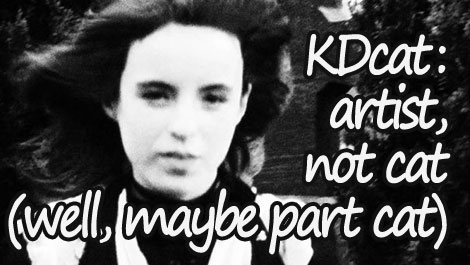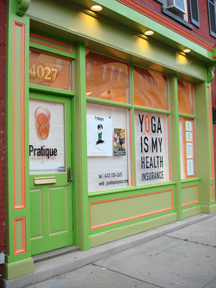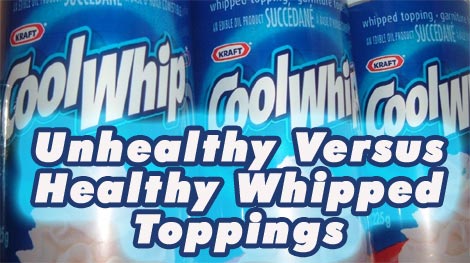
 Six months ago, we devoted a week's worth of coverage here on Pure Jeevan to diabetes. You'll find diabetes statistics, raw food resources for diabetes, stories of people who have beaten diabetes using a raw foods diet, an audio interview Wendi and I did about diabetes, and more.
Six months ago, we devoted a week's worth of coverage here on Pure Jeevan to diabetes. You'll find diabetes statistics, raw food resources for diabetes, stories of people who have beaten diabetes using a raw foods diet, an audio interview Wendi and I did about diabetes, and more.
We also linked several times to the Movement to Reverse Diabetes Naturally, where people could pick up copies of two amazing DVD documentaries, "Simply Raw: Reversing Diabetes in 30 Days" and "Raw for Life." Through an enormous effort during those weeks back then, the RDN Movement spread the word about raw foods to literally thousands of people!
Read more: "Raw for Life" and "Simply Raw" on Special This Week

Hi everyone!? Sorry for the late post tonight. I had a busy day, and even met with a new realtor to help me sell The Luck House! (Wish us luck on that front -- but I have a super-great feeling that this new realtor is 10x more professional and knowledgeable than the previous one.)
 Today I thought I'd give you a peek into Wendi's rather fascinating Inbox. While she's away, she asked me to monitor her Pure Jeevan mail box and field as many of the questions as possible. It's been ... interesting! :-)? I never realized the volume of email that she receives! It's almost a full-time job to keep on top of it (which I haven't been able to do as well as I'd hoped -- although I now have it down to just a ?hundred or so unanswered ones, so that's progress!).
Today I thought I'd give you a peek into Wendi's rather fascinating Inbox. While she's away, she asked me to monitor her Pure Jeevan mail box and field as many of the questions as possible. It's been ... interesting! :-)? I never realized the volume of email that she receives! It's almost a full-time job to keep on top of it (which I haven't been able to do as well as I'd hoped -- although I now have it down to just a ?hundred or so unanswered ones, so that's progress!).

Hi there, everyone!
We've been getting a lot of emails and comments about two subjects since we posted our itinerary, so we thought we should respond in a way to help answer the questions/concerns that maybe more of you may be having as well.
Well, we've finally done it -- made the move westward to our new hometown, Portland, Oregon! It's been nothing but the kind of high adventure befitting such a move, not the least of which was a wheel literally flying off of our car while driving (don't worry, no one was hurt) just days before we were scheduled to leave. And, of course, everything during the past few weeks wound up costing about 10x what we'd planned. ?But, we're here! ?And, we're beginning to get settled.
As always, we've got some great things on deck for this blog in the coming near term, including many interesting articles and some fun video experiments we did involving live blood and electrical grounding. We also have some new exciting web site features to roll out, one completely new raw food site to unleash upon the raw foods community, and a whole new Pure Jeevan web site design to launch. For now, though, we'll probably remain off-line for a bit longer, as we organize and unpack things.
Our Pittsburgh home remains for sale. Naturally, we'd hoped to have sold it before making this move. But, we realized that we didn't necessarily have to wait for it to sell in order to move to Portland. So, we took the great leap of faith and moved here without that step completed. (It'll certainly be a happy day when that lovely home finds its new owners and caretakers!).
Read more: Greetings from PDX, Pure Jeevan's New HQ!! (Post #756)
Over the weekend, we attended a fairy festival in Eugene, OR, called Faerieworlds . ?It was great fun -- loads and loads of interesting shops, festival-goers in costumes ranging in complexity from simple fairy ears to full-on ensembles, and some spectacular tribal bands on the main stage all day long.
What was unexpected, though, was seeing not just one (which, alone, would have been impressive), but *two* food carts dedicated to raw foods. ?The first was called Luminescent Foods:

 Wendi's initial observation about Santa Rosa was that, at first glance, it seemed similar to many of the places they'd visited in Oregon. However, once the sun came out, she said you could feel that California sunshine starting to warm up your body. This is Northern CA, so it's not overly hot; it is, however, much sunnier and a bit warmer than the parts of Oregon they visited.
Wendi's initial observation about Santa Rosa was that, at first glance, it seemed similar to many of the places they'd visited in Oregon. However, once the sun came out, she said you could feel that California sunshine starting to warm up your body. This is Northern CA, so it's not overly hot; it is, however, much sunnier and a bit warmer than the parts of Oregon they visited.
Wendi and KDcat were hosted by a lovely couple, Shea Lynn Baird and Stephen Barlow (and their adorable dog, Bella, pictured above). You might be familiarwith Shea already, as she and her husband launched the popular Monday Night Live series, broadcast Monday nights from Cafe Gratitude. Shea is a long-term raw foodist, so Wendi interviewed her and asked some questions about what she's been doing. It's a really great, highly interesting interview. Wendi also asked Shea to offer some helpful advice for our Pure Jeevan family members. I think everyone will enjoy the video:
Read more: Santa Rosa with Shea Lynn Baird, Stephen Barlow, and Bella -- And More!
Who's been making small changes and feeling a bit brighter lately, since we've been talking about brain health? Today, let's continue focusing on some things we can actively do to minimize our chances of developing memory problems like Dementia or Alzheimer's in the future.
Yesterday we focused on heart-healthy tips to increase brain function (since heart disease seems to be linked with Alzheimer's) and I shared a heart-healthy recipe with you. Today, we'll focus on inflammation.
Read more: Extinguish Inflammation: Anti-Inflammatory Recipe

Thank you, thank you, thank you! Today for Thankful Thursday, we wanted to say a special THANK YOU to our readers. It means so much to us that you come to visit our blog. With every new comment (both here on the blog and through email) it fills us with great happiness!
Is there something you'd like to see more of here on our blog? Something you'd like us to discuss? We know you are looking for more recipes, since you've told us (be sure to check out our recent posts where we've linked to some fantastic sites offering recipes!). What else would you like to read about or have us share with you?
 This morning as I was driving from the beautiful Carnegie Mellon University campus to a business meeting outside the city, I had to take a detour at one of Pittsburgh's many bridges. It was a little frustrating because I had hoped to arrive at my destination early enough to grab a green tea at a coffee shop. But, these little delays happen. I'm glad this one did, though, because I soon passed a small yoga studio (called Pratique) where an interesting window decal hangs. It reads: "Yoga is my health insurance."
This morning as I was driving from the beautiful Carnegie Mellon University campus to a business meeting outside the city, I had to take a detour at one of Pittsburgh's many bridges. It was a little frustrating because I had hoped to arrive at my destination early enough to grab a green tea at a coffee shop. But, these little delays happen. I'm glad this one did, though, because I soon passed a small yoga studio (called Pratique) where an interesting window decal hangs. It reads: "Yoga is my health insurance."
Many kudos to the clever people at Pratique who apparently crafted this catchy and spot-on message. While this is a raw foods site, not a yoga site, the message is equally apropos here. It essentially means, in my view, that we all have the opportunity to profoundly affect our own health and well being.
In our family, we're currently facing the realistic prospect of taking a literal approach to this concept, dropping formal health coverage! Quite literally, we feel that maintaining a health plan is (almost) a complete waste of money. I'm not posting this to start a debate as to whether those who follow a healthy diet should or should not buy into a plan. (I know all of the related arguments already: Yeah, but what if you cut your arm and need stitches Save that for Facebook or, at least, some other time.) I'm more concerned with reiterating one of our key messages here at Pure Jeevan -- our unwavering ?conviction that physical health and diet are tightly connected. Wendi knows this, I know this, our child knows this, YOU know this... But why doesn't everyone acknowledge it?
One of our readers, Julie, asked me to update her on what kind of diet I'm doing and why I'm doing it. The last time I publicly made changes with my diet, I received many similar questions. So, I figured maybe it would be a good idea to respond to her question here on the blog for anyone else wondering the same thing.
I did explain, in a long post, about experimenting with my diet being important to me.If you didn't read that entry, it will answer a lot of your questions. For many of you, I think I know what you are thinking: "Wendi was pretty much morbidly obese, her health was horrible, but she's now healthy. Why would she change anything with her diet when she has already found what works "?
Well, it's true. I am extremely healthy compared to how I was before I started consuming raw foods. Here are some pictures to show the changes, to motivate some of you currently struggling with eating more raw foods...

One reason I keep going on and on lately about raw desserts and raw ice creams is best conveyed with an example. ?Here are the ingredients in Cool Whip, a commonly available whipped topping:
- water
- hydrogenated vegetable oil (coconut and palm kernel oils)
- high fructose corn syrup
- corn syrup
- skim milk
- light cream
- less than 2% of:
- sodium caseinate
- natural and artificial flavors
- xanthan and guar gums
- polysorbate 60
- sorbitan monostearate
- beta carotene (color)
Wow, I had a chemistry set in 5th grade that had a lot of things that sounded like some of those items. It's actually mind-boggling to envision the industrial processes necessary to produce everything on that list -- not that it's entirely possible to do so. After all, among the list of ingredients are "natural and artificial flavors." Ever wonder what, exactly, those are?
Read more: Natural and Artificial Flavors, and a Raw Whipped Cream Recipe

